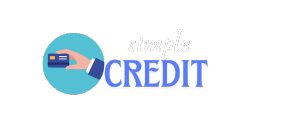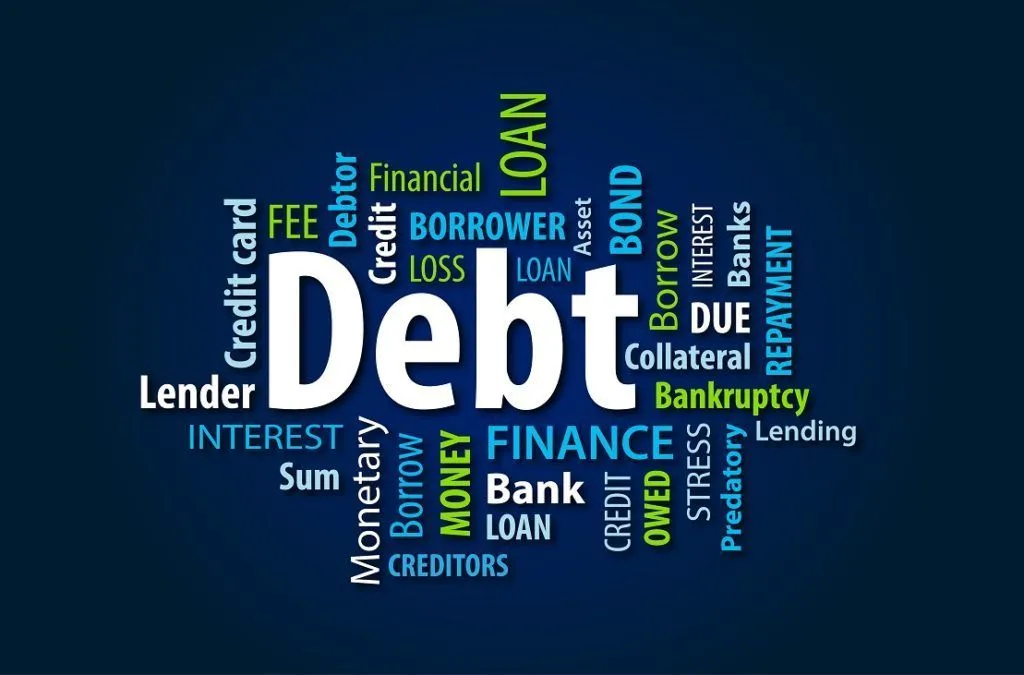Debt can be a major source of stress, confusion, and anxiety for many individuals. With mounting bills, high interest rates, and aggressive debt collectors, it can feel like there is no way out. However, there are structured solutions available to help people regain control of their finances and work towards becoming debt-free. One of the most popular and effective solutions is a Debt Management Program (DMP).
In this article, we’ll explore what a Debt Management Program is, how it works, the benefits it offers, and how to determine if it is the right solution for your financial situation. We’ll also address common questions, provide real-life examples, and conclude with essential takeaways to help you better understand this important financial tool.
Key Takeaways
- Simplified Debt Repayment: A Debt Management Program consolidates multiple debts into one monthly payment, making it easier to manage.
- Lower Interest Rates: Credit counselors can negotiate lower interest rates, which helps reduce the overall cost of your debt.
- Reduced Harassment: A DMP can reduce the stress of dealing with collection calls and creditor threats.
- Long-Term Financial Health: Completing a DMP can improve your financial stability and boost your credit score over time.
- Commitment is Key: To succeed in a DMP, you must commit to making regular payments and refraining from accumulating new debt.
What is a Debt Management Program (DMP)?

A Debt Management Program (DMP) is a debt repayment strategy that involves working with a credit counseling agency to consolidate and pay off your unsecured debts, such as credit card balances, personal loans, and medical bills. The goal of a DMP is to simplify your payments, lower your interest rates, and help you pay off your debt faster.
When you enroll in a DMP, the credit counseling agency negotiates with your creditors on your behalf to reduce interest rates, waive fees, and establish a single, monthly payment that is distributed across your debts. Essentially, a DMP offers a structured plan for paying off debt in a more manageable way.
Key Features of a Debt Management Program:
- Consolidation of Debts: Instead of managing multiple credit card payments, personal loans, and other debts, you make one monthly payment to the credit counseling agency, which then disburses the payment to your creditors.
- Lower Interest Rates: Credit counselors typically negotiate lower interest rates with creditors, which can significantly reduce the overall cost of your debt.
- Waived Fees: Some creditors may agree to waive late fees and over-limit charges, which helps you pay down your debt faster.
- Fixed Monthly Payments: The credit counseling agency will work with you to determine a realistic and manageable payment plan based on your income and expenses.
- No New Credit: While in a DMP, you are generally advised not to open new lines of credit. This helps prevent accumulating more debt while you’re working to pay off your existing balances.
How Does a Debt Management Program Work?
A Debt Management Program involves several steps to ensure that you’re making consistent progress toward paying off your debt. Here’s a breakdown of how it works:
Step 1: Enrolling in a Debt Management Program
The first step is to find a certified credit counseling agency. Reputable organizations are typically accredited by the National Foundation for Credit Counseling (NFCC) or the Financial Counseling Association of America (FCAA). These organizations will evaluate your financial situation by reviewing your income, debts, expenses, and assets.
Once you’ve chosen a credit counseling agency, they will conduct a thorough assessment of your financial situation. This will include:
- Reviewing your outstanding debts: Your credit counselor will look at all your debts, including credit cards, loans, medical bills, and other unsecured debts.
- Assessing your income and expenses: The counselor will examine your monthly income and expenses to determine how much you can realistically afford to pay toward your debt each month.
- Creating a repayment plan: Based on the information gathered, the counselor will help you create a personalized debt repayment plan. This plan will consolidate your debt into one affordable monthly payment.
Step 2: Negotiating with Creditors
Once your repayment plan is established, the credit counseling agency will reach out to your creditors to negotiate more favorable terms. This may include:
- Lowering interest rates: Creditors often agree to lower interest rates, making it easier for you to pay off your balance faster.
- Waiving fees: Late fees, over-limit charges, and other penalties may be waived as part of the negotiation process.
- Suspending collection activities: Creditors may halt collection calls, reducing stress and harassment.
The goal of these negotiations is to reduce the overall cost of your debt, allowing you to pay it off faster and more affordably.
Step 3: Making Monthly Payments
Once the creditor negotiations are complete, you will begin making one monthly payment to the credit counseling agency. This payment will be based on your budget and income, ensuring that it is manageable for you.
The credit counseling agency will then distribute these funds to your creditors according to the terms of the repayment plan. Over time, as you make consistent payments, your debt balance will decrease.
Step 4: Successfully Completing the Program
The length of a Debt Management Program depends on the total amount of debt you owe, your monthly payments, and the interest rates on your accounts. Typically, DMPs last between three and five years. Upon completion of the program, your debts should be fully paid off, and you’ll have a clean slate financially.
Benefits of a Debt Management Program
A Debt Management Program offers several key benefits that can help individuals regain control over their finances and work towards becoming debt-free.
1. Lower Interest Rates
One of the most significant advantages of a DMP is the ability to negotiate lower interest rates on your debts. High-interest credit cards and personal loans can make it difficult to pay off the principal balance, especially when most of your monthly payment goes toward interest. Through a DMP, your credit counselor works with creditors to lower interest rates, which means a larger portion of your payment goes toward reducing the principal debt.
2. Simplified Payments
Managing multiple payments to different creditors each month can be overwhelming. A Debt Management Program simplifies the process by consolidating your debts into one monthly payment. You no longer have to worry about keeping track of multiple due dates, interest rates, and minimum payments.
3. Avoidance of Bankruptcy
While bankruptcy is an option for individuals in severe financial distress, it has long-lasting consequences that can negatively affect your credit score and your ability to borrow money in the future. A DMP can be an alternative to bankruptcy, allowing you to pay off your debts without resorting to this extreme measure.
4. Reduced Stress and Harassment

Creditors and collection agencies can be aggressive and relentless in their pursuit of payment. With a Debt Management Program, your credit counselor acts as an intermediary between you and your creditors, which can significantly reduce the number of collection calls and harassment you face.
5. Improved Credit Score
Although a DMP does not erase your debt or improve your credit score overnight, it can help improve your credit over time. As you make consistent monthly payments and reduce your debt, your credit score may improve as a result. Furthermore, participating in a DMP demonstrates to future lenders that you are responsible with debt management.
How to Know If a Debt Management Program Is Right for You
While a Debt Management Program can be an effective solution for many people, it’s not right for everyone. Here are some factors to consider when deciding if a DMP is the right option for your financial situation:
1. Your Debts Are Unsecured
A DMP is designed for unsecured debts, such as credit cards, medical bills, and personal loans. If your debts include secured loans (like mortgages or car loans), a DMP may not be the appropriate solution, as these types of debts have different legal implications.
2. You Can Afford to Make Monthly Payments
To be successful in a Debt Management Program, you must be able to make regular monthly payments toward your debt. If your financial situation is too dire to afford these payments, a DMP may not be the right choice. You may want to explore other options, such as debt settlement or bankruptcy.
3. You Are Committed to Staying Debt-Free
A Debt Management Program requires commitment and discipline. During the course of the program, you’ll need to avoid accumulating new debt and make consistent payments toward your existing obligations. If you are committed to staying debt-free and working toward financial stability, a DMP can be a great option.
The Impact of a Debt Management Program on Your Credit Score
For many people, one of the most significant concerns when considering a Debt Management Program is how it will impact their credit score. While participating in a DMP can temporarily affect your credit, it is generally a positive move for those committed to becoming debt-free. Let’s take a closer look at how a DMP can affect your credit.
Short-Term Impact
When you enter a Debt Management Program, your credit score may drop slightly in the short term. This is typically due to the fact that:
- Accounts may be marked as “included in DMP”: Creditors may report your accounts as being part of a DMP. This can affect your credit score as it indicates you are paying off your debts via a structured plan rather than paying them off on your own.
- Accounts may be closed: In some cases, credit cards included in the DMP may be closed, which could affect your credit utilization ratio. This may cause a small dip in your credit score initially.
Long-Term Impact
However, in the long run, successfully completing a DMP can actually improve your credit score. Here’s why:
- Timely Payments: A major factor in your credit score is your payment history. By sticking to your monthly DMP payments and clearing your debts, you demonstrate financial responsibility, which can positively impact your credit score over time.
- Reduction of Credit Card Balances: As you pay off your credit card balances and other debts, your credit utilization rate (the ratio of your outstanding balance to your available credit) will decrease. A lower credit utilization ratio can increase your credit score.
- Debt-Free Status: After completing a DMP, you will be debt-free, which will significantly improve your financial standing. A clean slate with no revolving credit card balances will have a positive impact on your creditworthiness.
Tips to Minimize Credit Score Damage During a DMP
- Monitor your credit regularly: Use free services to track your credit score and credit report regularly to ensure that your creditors are reporting correctly and to spot any potential issues early.
- Focus on other areas of credit improvement: While in a DMP, focus on maintaining a solid payment history for other bills like utilities, car loans, or rent. This can help offset any small negative impact from your credit cards.
Alternatives to Debt Management Programs
While DMPs are an excellent solution for many individuals facing credit card debt or personal loans, they are not the only option. There are several alternatives that may work better depending on your situation.
1. Debt Settlement

Debt settlement is a strategy where you negotiate directly with your creditors to reduce the total amount of debt you owe. Unlike a DMP, where you pay off your debts in full over time, debt settlement involves negotiating to pay a lump sum that is less than what you originally owed.
While this option may reduce the amount of debt you need to pay, it comes with several risks:
- Damage to Credit: Debt settlement can severely damage your credit score, as creditors may report your account as settled for less than the full amount. This can stay on your credit report for up to seven years.
- Tax Implications: The forgiven debt in a settlement may be taxable, meaning you could end up owing taxes on the amount that is forgiven.
2. Bankruptcy
Bankruptcy is the most severe option for individuals in financial distress. It involves legal proceedings where certain debts are either partially or fully discharged, depending on the type of bankruptcy filed.
While bankruptcy provides immediate relief, it comes with lasting consequences:
- Long-Term Credit Damage: Bankruptcy can remain on your credit report for up to 10 years, significantly impacting your ability to borrow money.
- Loss of Assets: In some cases, filing for bankruptcy may require you to liquidate assets, such as property or savings, to pay off creditors.
Bankruptcy is typically seen as a last resort after other debt management options have been exhausted.
3. Debt Consolidation Loan
Debt consolidation loans allow you to consolidate multiple debts into a single loan with a potentially lower interest rate. While this is different from a DMP, it has some overlapping features. With a debt consolidation loan, you take out a new loan to pay off your existing debts, leaving you with one monthly payment to manage.
The advantages of debt consolidation loans include:
- Single Monthly Payment: Like a DMP, debt consolidation simplifies the repayment process.
- Lower Interest Rates: You may qualify for a loan with a lower interest rate than what you were paying on your credit cards.
However, consolidation loans often require a good credit score to qualify for favorable terms. If you are unable to secure a low-interest loan, a debt consolidation loan might not save you much money over time.
4. Credit Counseling and Financial Education
For some individuals, the issue may not be the amount of debt, but the inability to manage finances effectively. In these cases, credit counseling and financial education can be beneficial.
Credit counseling helps you understand your financial situation and develop skills to manage money more effectively. This can include creating a realistic budget, addressing spending habits, and learning how to avoid accumulating more debt in the future.
Choosing the Right Solution for Your Situation

Choosing the best debt management strategy depends on your specific financial circumstances. If you are facing overwhelming credit card debt and struggling to make monthly payments, a Debt Management Program can be an excellent option. However, if you have a large amount of unsecured debt and feel you won’t be able to repay it in full, debt settlement or even bankruptcy might be worth considering.
Here are some guidelines to help you decide:
- If you have manageable debt with high interest rates: A DMP can help lower interest rates and consolidate your debts into a single monthly payment.
- If you have large amounts of unsecured debt and can’t pay it off: Debt settlement may be a viable option, but be prepared for the impact on your credit score and the potential tax liability.
- If you need to eliminate debt quickly and can’t afford to repay: Bankruptcy may be necessary, but this should be a last resort due to the severe impact it has on your credit and financial future.
Also Read: What Is A Debt Management Plan And How Can It Help You?
Conclusion
A Debt Management Program is a powerful tool for individuals struggling with unsecured debt. It can help you simplify your payments, lower interest rates, and avoid bankruptcy. By working with a reputable credit counseling agency, you can create a plan that fits your financial situation and work toward becoming debt-free. While a DMP requires commitment and discipline, the benefits—reduced stress, lower payments, and a clearer path to financial freedom—make it a worthwhile option for many people.
Frequently Asked Questions
Will a Debt Management Program affect my credit score?
A Debt Management Program may have a temporary impact on your credit score, but over time, making consistent payments can help improve your score.
How long does a Debt Management Program take to complete?
A DMP typically takes three to five years to complete, depending on your debt amount and payment schedule.
Can I still use my credit cards while in a Debt Management Program?
While enrolled in a DMP, you are typically required to stop using your credit cards to prevent accumulating additional debt.
Will I have to pay taxes on forgiven debt?
In most cases, if debt is forgiven through a DMP, it is not considered taxable. However, always consult with a tax professional to understand your specific situation.
How much does a Debt Management Program cost?
The fees for a DMP vary by agency, but many non-profit credit counseling agencies offer free consultations and charge minimal fees for administration.
Can I cancel my Debt Management Program if it’s not working for me?
Yes, you can cancel your DMP at any time. However, keep in mind that this may result in higher interest rates and fees being re-applied to your accounts.
Can a Debt Management Program help with student loans?
A DMP may not be the best solution for student loans, as these are federal debts. However, a credit counselor may be able to help you explore other options for managing student loan payments.




